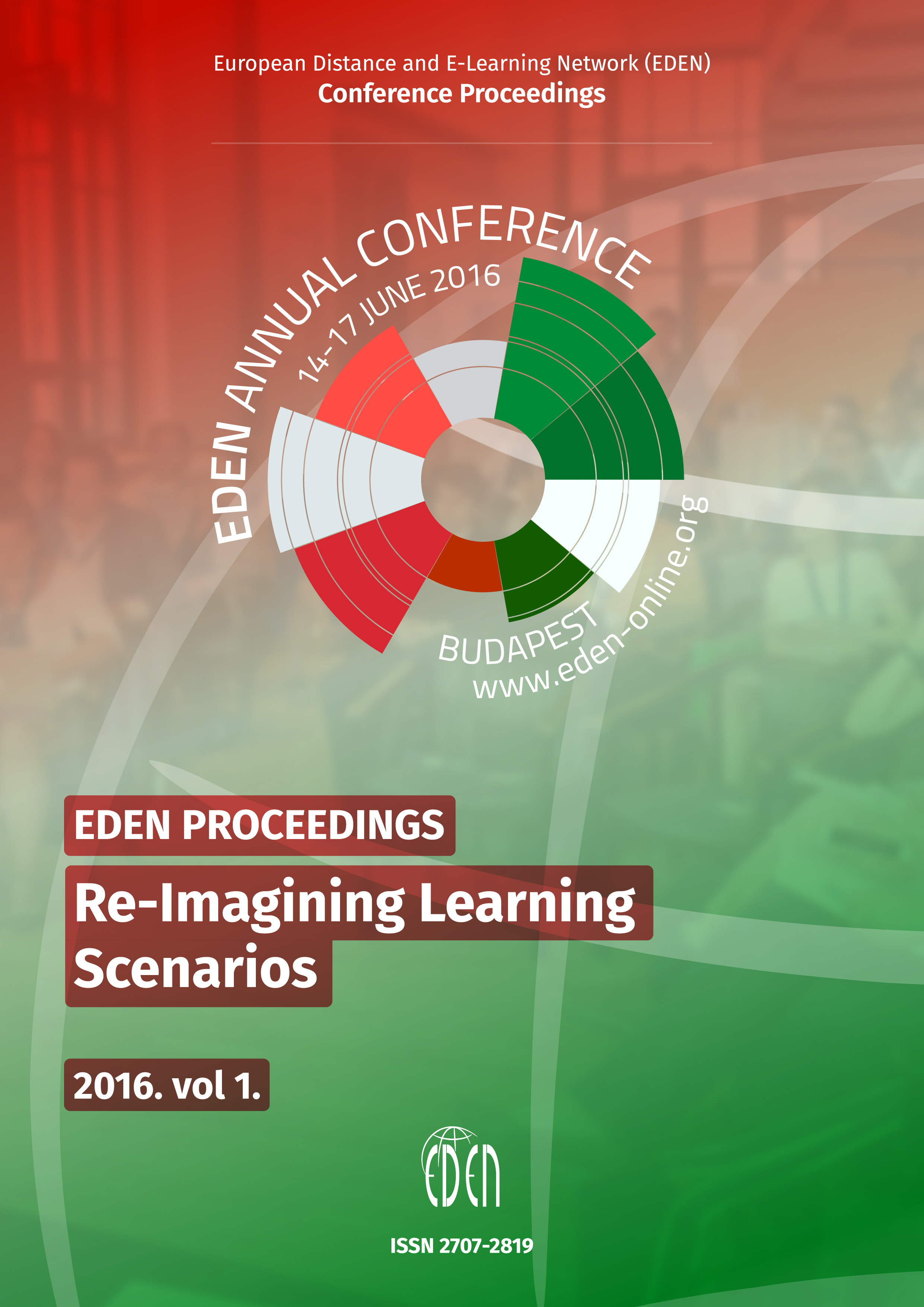Examination of the Effectiveness of Electronic Learning Environments
Examination of the Effectiveness of Electronic Learning Environments
Author(s): Erika JókaiSubject(s): Social Sciences, Education, Higher Education
Published by: European Distance and E-Learning Network
Keywords: Learning effectiveness, improvement of learning experience; Online learning environments and platforms
Summary/Abstract: The e-learning tools play a major role in supporting the individual learning processes and itsefficiency (Green et al., 2010). However, the concept of these environments has a broadspectrum, it encompasses a variety of online platforms, applications, and virtual spaces.Nowadays educational science research focuses on the efficiency of e-learning and on theappropriateness of its methods. In a significant part of the domestic and internationalresearches the researchers (Palfrey & Gasser, 2008; Prensky, 2005; Tapscott, 2009) analyse theadequacy of the electronic methodological device (content and format of the curriculum). Inother parts, examining the connections of the different forms of course organization (elearning, blended-learning, classic-learning, virtual-learning) and the students’ characteristics(age, lifestyle, learning patterns, technological knowledge) the researchers are trying to proveor disprove the adequacy of the e-learning environments for the students. (Ollé & Csekő,2004; Benson, 2005; Rønning, 2007; Cygman, 2010)
Journal: European Distance and E-Learning Network (EDEN) Conference Proceedings
- Issue Year: 2016
- Issue No: 1
- Page Range: 355-361
- Page Count: 7
- Language: English

